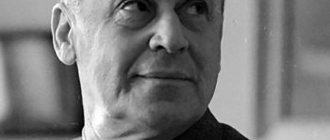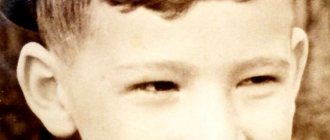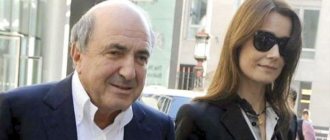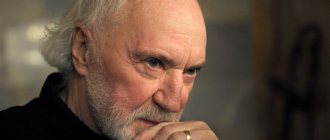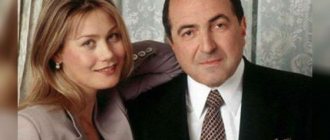Wikipedia has articles about other people with this surname, see Godunov.
This term has other meanings, see Boris Godunov.
| Boris Fedorovich Godunov | |
| Boris Feodorovich Godunov | |
| Image from the Tsar's title book | |
| Coronation | 1 (11) September 1598 |
| Predecessor | Irina Godunova |
| Successor | Fedor II Godunov |
- Trinity-Sergius Lavra
Boris Fedorovich Godunov
(1552 - April 13 [23], 1605) - boyar, brother-in-law (wife's brother) of Tsar Fyodor I Ioannovich, in 1587-1598 the de facto ruler of the state, from February 17 (27), 1598 to April 13 (23), 1605 - the first Russian Tsar from the Godunov dynasty.
Content
- 1 Origin
- 2 Birth. early years
- 3 Extension
- 4 Head of government under Tsar Fedor
- 5 Death of Tsarevich Dmitry
- 6 Goduns on the throne 6.1 Repressions
- 6.2 Great Famine
- 6.3 Appearance of the impostor
- 9.1 Cinematography
Origin[ | ]
Main article: Godunovs
The Godunov family came from Kostroma from the boyar Dmitry Zerno, who served the Grand Duke of Moscow Ivan Danilovich Kalita (1288-1340). According to the Sovereign's genealogy, compiled around 1555, Dmitry Zerno “ had three sons: Ivan, Konstantin Sheya, childless, and Dmitry. And Ivan Dmitreevich has children: Fyodor Sabur, Danilo Podolskoy, childless, and Ivan Godun
"[2]. Starting with Dmitry Zern, Godunov's ancestors were boyars at the Moscow court. Boris Godunov's father, Fyodor Ivanovich Godunov, nicknamed Krivoy, was a middle-class landowner in Vyazemsky district.
There is a version according to which the Godunovs, like the related Saburovs and Velyaminov-Zernovs, descended from the Tatar Murza Chet, who came to Rus' in 1330 during the time of Ivan Kalita. This version was included in later editions of the Sovereign's genealogy (late 16th century) and, according to historians, due to serious chronological, genealogical and general historical problems, it is unreliable[3][4][5]. Thus, the time of Chet’s arrival practically coincides with the years of service of Dmitry Zern, named Chet’s grandson. Chet’s “son”, Kostroma boyar Alexander Zerno, who was killed in 1304, is almost completely missing. If we assume that Chet actually arrived in Rus' earlier - in the second half of the 13th century, then this would be an unprecedented case at that time, which would not go unnoticed in the chronicles.
Birth. Early years[ | ]
Boris Godunov was born in 1552, shortly before the conquest of Kazan, in the family of the middle-class Vyazma landowner Fyodor Ivanovich Godunov. Almost nothing is known about Father Fyodor, except for the nickname “Crooked,” which gives us an idea of the physical appearance of Father Boris. Boris's father Fedor and his brother Dmitry, in addition to family estates near Vyazma, from which they carried out local service to the sovereign, also owned a small estate in Kostroma.
After the death of the father of the Vyazma landowner Fyodor Krivoy (d. 1569), Boris was taken into his family by his uncle Dmitry Godunov. During the years of the oprichnina, Vyazma, in which Dmitry Godunov’s possessions were located, passed to the oprichnina’s possessions. The ignorant Dmitry Godunov was enrolled in the oprichnina corps and soon received the high rank of head of the Bed Order at court.
Nomination[ | ]
The promotion of Boris Godunov begins in the 1570s. In 1570 he became a guardsman, and in 1571 he was a groomsman at the wedding of Tsar Ivan the Terrible to Marfa Sobakina. In the same year, Boris himself married Maria Grigorievna Skuratova-Belskaya, daughter of Malyuta Skuratov[6]. In 1578, Boris Godunov became a master. Two years after the marriage of his second son Fyodor to Godunov’s sister Irina, Ivan the Terrible granted Boris the title of boyar. The Godunovs slowly but surely climbed the hierarchical ladder: in the late 1570s - early 1580s. they won several local cases at once.
Godunov was smart and careful, trying for the time being to stay in the shadows. In the last year of the Tsar's life, Boris Godunov gained great influence at court. Together with B. Ya. Belsky, he became one of the close people of Ivan the Terrible.
The role of Godunov in the history of the tsar’s death is not entirely clear. On March 18 (28), 1584, Grozny, according to D. Horsey, was “strangled.” It is possible that a conspiracy was drawn up against the king. In any case, it was Godunov and Belsky who were next to the tsar in the last minutes of his life, and they announced to the people from the porch about the death of the sovereign.
| The last Rurikovichs, Godunovs and the first Romanovs | |||||||||||||||||||||||||||||||||||||||||||||||||||||||||||||||||||||||||||||||||||||||||||||||||||||||||||||||||||||||||||||||||||||||||||||||||||||||||||||||||||||||||||||||||||||||||||||||||||||||||||||||||||||||||||||||||||||||||||||||||||||||||||||||||
Roman (d. 1543)
| |||||||||||||||||||||||||||||||||||||||||||||||||||||||||||||||||||||||||||||||||||||||||||||||||||||||||||||||||||||||||||||||||||||||||||||||||||||||||||||||||||||||||||||||||||||||||||||||||||||||||||||||||||||||||||||||||||||||||||||||||||||||||||||||||
Fyodor Ioannovich ascended the throne. The new tsar was not capable of ruling the country and needed a smart adviser, so a regency council of four people was created: Bogdan Belsky, Nikita Romanovich Yuryev (Romanov) (grandfather of the future first tsar of the Romanov dynasty - Mikhail), princes Ivan Fedorovich Mstislavsky and Ivan Petrovich Shuisky[7].
On May 31 (June 10), 1584, on the day of the tsar’s coronation, Boris Godunov was showered with favors: he received the rank of equerry, the title of a close great boyar and governor of the Kazan and Astrakhan kingdoms. However, this did not mean that Godunov had sole power - at court there was a stubborn struggle between the boyar groups of the Godunovs, Romanovs, Shuiskys, and Mstislavskys. In 1584, B. Belsky was accused of treason and exiled; the following year Nikita Yuryev died, and the elderly Prince Mstislavsky was forcibly tonsured a monk. Subsequently, the hero of the defense of Pskov, I.P. Shuisky, also fell into disgrace. In fact, since 1585, 13 out of 14 years of the reign of Fyodor Ioannovich, Russia was ruled by Boris Godunov[8].
False Dmitry
There were reports of Dmitry's escape, with peasants and city dwellers fleeing to the forests or steppes, where they became bandits and the unburied dead piled up. In the early summer of 1603, a servant informed the Polish prince that he was a prince, and the prince sent a man claiming to be Dmitry to Zygmunt;
if this "Dmitry" became a Catholic, the Poles could help. On April 24, 1604, the young man sent a letter to Pope Clement VIII indicating his “obedience and submission.” An agreement was concluded: the Polish landowner Jerzy Mniszek would receive 100,000 florins; in return, “Dmitry” would marry Mniszek’s daughter Marina, give the Mniszek family the cities of Pskov and Novgorod and surrender the Smolensk fortress to Poland.
When Godunov learned about the progress of the case, his mother, Marta, brought him to Moscow, where she refused to say whether her son was alive or not. Declaring that the impostor “Dmitry” was in fact the beheaded monk Grishka Otrepiev, the Russian Church excommunicated him. Scholars, however, remain in doubt as to the actual identity of "Dmitry".
Regardless of his true identity, the man known as Dmitry invaded Russia in October 1604 and thousands joined his standard. Godunov, increasingly ill and suffering a stroke in the spring of 1603, sent the imperial army. In January of the following year, the forces of "Dmitry" were defeated, but to no avail;
At 1 am on April 13, 1605, Godunov suddenly rose from dinner, blood gushing from his nose, mouth and ears. Two hours later he was dead. The next day, Muscovites took the oath to Tsar Fyodor Borisovich, Godunov’s son. On April 17, the army swore allegiance; ten days later, Vasily Shuisky and Mistislavsky swore to protect Tsar Fedor.
But it wasn't meant to be. On May 17, imperial generals joined “Dmitry”. By June 2, Shuisky announced that the 1591 report was a lie: Dmitry had not died. Arrested on June 10, Tsar Fedor was killed a week later along with his mother and cousins; his sister was sent to a convent. “Dmitry” entered Moscow, and on July 18, Martha hugged her son.
Nikolay Ge. Boris Godunov and Queen Martha, summoned to Moscow for questioning about Tsarevich Dmitry upon news of the appearance of an impostor
But the throne was still not safe. Within a year, Shuisky and Marta recanted, claiming that Dmitry was indeed killed on Godunov's orders. New Dmitry was then killed; the body of the real Dmitry was brought to Moscow for canonization, and Vasily Shuisky became Tsar Vasily V. Another “Dmitry” appeared;
the Poles invaded. Shuisky was captured and sent to a Polish prison. The Swedes invaded and fought the Poles. Civil war and guerrilla warfare began. The Poles were defeated. The brigands then joined the guerrillas in the Church-sponsored war of national liberation. Reverend Filaret, former Fyodor Romanov, called for national unity.
On February 21, 1613, Fyodor's son Mikhail Romanov was elected tsar, and on January 24, 1619, he appointed his father Russian Patriarch. The Romanovs inherited Godunov's legacy.
Head of government under Tsar Fedor[ | ]
The activities of Godunov's reign were aimed at comprehensively strengthening statehood. Thanks to his efforts, in 1589 the first Russian patriarch was elected, who became Metropolitan Job of Moscow. The establishment of the patriarchate testified to the increased prestige of the Moscow kingdom. Common sense and prudence prevailed in the internal policy of the Godunov government. An unprecedented construction of cities and fortifications began.
Boris Godunov patronized talented builders and architects. Church and city construction was carried out on a large scale. On the initiative of Godunov, the construction of fortresses began in the Wild Field - the steppe outskirts of Rus'. The Voronezh fortress was built in 1585, and Livny in 1586. To ensure the safety of the waterway from Kazan to Astrakhan, cities were built on the Volga - Samara (1586), Tsaritsyn (1589), Saratov (1590). In 1592, the city of Yelets was restored. The city of Belgorod was built on the Donets in 1596, and Tsarev-Borisov was built to the south in 1600. The settlement and development of the lands deserted during the yoke to the south of Ryazan (the territory of the present Lipetsk region) began. In Siberia in 1604 the city of Tomsk was founded.
In the period from 1596 to 1602, one of the most grandiose architectural structures of pre-Petrine Rus' was built - the Smolensk fortress wall, which later became known as the “stone necklace of the Russian Land.” The fortress was built on the initiative of Godunov to protect the western borders of the Russian state from Poland. Another project of Boris Godunov was the stone fortress of Borisov Gorodok near Mozhaisk, at which the Boris and Gleb Church was also built - the largest tented church in Russian history.
A. Kivshenko. “Tsar Fyodor Ioannovich puts a gold chain on Boris Godunov”
Under him, unheard-of innovations entered the life of Moscow, for example, a water supply system was built in the Kremlin, through which water was raised by powerful pumps from the Moskva River underground to the Konyushenny Yard. New fortifications were also built. In 1584-1591, under the leadership of the architect Fyodor Savelyev, nicknamed the Horse, the walls of the White City, 9 km long, were erected (they surrounded the area enclosed within the modern Boulevard Ring). The walls and 29 towers of the White City were made of limestone, lined with brick and plastered. In 1592, on the site of the modern Garden Ring, another line of fortifications was built, wooden and earthen, nicknamed “Skorodom” for the speed of construction.
In the summer of 1591, the Crimean Khan Kazy-Girey with an army of one and a half thousand approached Moscow, however, finding himself at the walls of a new powerful fortress and under the guns of numerous guns, he did not dare to storm it. In minor skirmishes with the Russians, the khan's troops were constantly defeated; this forced him to retreat, abandoning his baggage train. On the way to the south, to the Crimean steppes, the khan's army suffered heavy losses from the Russian regiments pursuing him. For the victory over Kazy-Girey, Boris Godunov received the greatest reward of all the participants in this campaign (although the main governor was not he, but Prince Fyodor Mstislavsky): three cities in the Vazhsky land and the title of servant, which was considered more honorable than the boyar title.
Godunov sought to alleviate the situation of the townspeople. According to his decision, traders and artisans who lived in “white” settlements (privately owned, paying taxes to large feudal lords) were counted among the population of “black” settlements (paying tax - “tax” - to the state). At the same time, the size of the “tax” levied on the settlement as a whole was left the same, and the share of the individual city dweller in it decreased.
The economic crisis of the 1570s and early 1580s forced the establishment of serfdom. On November 24 (December 4), 1597, a decree was issued on “preparatory years”, according to which peasants who fled from their masters “before this ... year for five years” were subject to investigation, trial and return “back to where someone lived.” Those who fled six years ago or earlier were not covered by the decree; they were not returned to their former owners.
Nikolay Ge. Boris Godunov and Queen Martha, summoned to Moscow for questioning about Tsarevich Dmitry upon news of the appearance of an impostor
In foreign policy, Godunov proved himself to be a talented diplomat. On May 18 (28), 1595, a peace treaty was concluded in Tyavzin (near Ivangorod), ending the Russian-Swedish war of 1590-1595. Godunov managed to take advantage of the difficult internal political situation in Sweden, and the Russian kingdom, according to the agreement, received Ivangorod, Koporye and Korela (in return, Boris left Narva to the Swedes as compensation). Thus, Russia regained all the lands transferred to Sweden as a result of the unsuccessful Livonian War.
Strengthening the state and growing cities
Having concentrated all supreme power in his hands, he directed it towards the comprehensive strengthening of Russian statehood. As a result of his works, in 1589 the Russian Orthodox Church found its patriarch and became autocephalous, which increased the prestige of Russia and strengthened its influence in the world. At the same time, his domestic policy was distinguished by intelligence and prudence.
During the reign of Godunov, the construction of cities and fortifications began on an unprecedented scale throughout the country. The reign of Boris Godunov became the heyday of Russian church and secular architecture. The most talented architects enjoyed full support. Many of them were invited from abroad.
It was on Godunov’s initiative that the cities of Samara, Tsaritsyn, Saratov, Belgorod, Tomsk and many others were founded. The foundation of the fortresses of Voronezh and Liven is also the fruit of his statesmanship.
To protect against possible aggression from Poland, a grandiose defensive structure was erected - the Smolensk fortress wall. And at the head of all these endeavors was Boris Godunov.
Godunov’s activities within the state
During this period, in Moscow, at the direction of Godunov, the first water supply system in Russia was built - an unheard of thing at that time. From the Moscow River, using specially made pumps, water flowed to the Konyushenny Yard. At the end of the 16th century, this was a real technical breakthrough. In addition, the reign of Boris Godunov was marked by another important initiative - the nine-kilometer walls of the White City were built.
Constructed of limestone and lined with brick, they were fortified with twenty-nine watchtowers. Somewhat later, another line of fortifications was built. It was located where the Garden Ring passes today.
As a result of such large-scale work on the construction of defensive structures, the army of the Tatar Khan Kazy-Girey, who approached Moscow in 1591, was forced to abandon attempts to storm the city and retreated. Subsequently, it was completely defeated by the Russian troops pursuing it.
Foreign policy of Boris Godunov
Briefly describing his achievements in the field of diplomacy, we should first of all mention the peace treaty he concluded with Sweden, which ended a war that lasted more than three years. Godunov took advantage of the difficult situation that had developed within Sweden, and as a result of a treaty favorable to Moscow, he managed to return all the lands lost as a result of the Livonian War. Thanks to his talent and ability to negotiate, Ivangorod, Yam, Koporye and a number of other cities again became part of Russia.
Death of the young prince
The heir to the throne during the life of Tsar Theodore was his younger brother Dmitry, the son of the seventh wife of Ivan the Terrible. In May 1591, an event occurred that largely overshadowed the historical image of Boris Godunov.
In Uglich, under very mysterious circumstances, the legal heir to the throne, the young Tsarevich Dmitry, died. Since his death opened the way for Godunov to reign, general rumor hastened to accuse him of organizing the murder. Nevertheless, Godunov’s participation in the conspiracy to kill the prince has not been proven.
Death of Tsarevich Dmitry[ | ]
Main article: Uglich case
The heir to the throne during the life of Tsar Fedor was his younger brother Dmitry, the son of the seventh wife of Ivan the Terrible. Dmitry was not recognized by the church as an official heir, since he was born from his seventh marriage, which was recognized as “prodigal” and illegal. After the death of Tsar Ivan Vasilyevich the Terrible, Tsarevich Dmitry was sent for permanent residence to the city of Uglich. On May 15 (25), 1591, under unclear circumstances, the 8-year-old prince died in the appanage city of Uglich. The official investigation was conducted by boyar Vasily Shuisky. Trying to please Godunov, he reduced the reasons for the incident to the “negligence” of the Nagikh boyars, as a result of which Dmitry accidentally stabbed himself with a knife while playing with his peers. The prince was rumored to be ill with epilepsy.
The chronicle of the Romanov times accuses Godunov of the murder of Boris, because Dmitry was the direct heir to the throne and prevented Boris from advancing to him. Isaac Massa gives the same version. Nevertheless, Godunov’s participation in the conspiracy to kill the prince has not been proven. In 1829, historian M.P. Pogodin was the first to risk speaking out in defense of Boris’s innocence[10]. The original criminal case of the Shuisky commission, discovered in the archives, became the decisive argument in the dispute. He convinced many historians of the 20th century (S. F. Platonov, R. G. Skrynnikov) that the true cause of the death of Ivan the Terrible’s son was an accident. However, this issue remained debatable, opinions were expressed both about the meaninglessness of the death of the prince for Godunov (in particular, pointing out the illegitimacy of the son from his seventh marriage in the eyes of the church, and therefore the doubtfulness of his rights to the throne), and about Boris’s direct interest in his death (for example , because of Dmitry’s hypothetical revenge, in the event of accession to the throne, for his deportation to reign in Uglich).
Boyar opposition
But the new sovereign was not destined to rule Russia calmly and serenely. In 1601, a famine began in the country, caused by the loss of crops due to severe weather conditions. It lasted three years and claimed many lives. Boris's opponents took advantage of this. They in every possible way contributed to the spread of rumors among the people that the disasters that befell the country were God's punishment for the murderer king for the death of the legitimate heir to the throne.
Mass hunger and dissatisfaction with the establishment of "lesson years" became the cause of a major uprising led by Cotton (1602-1603). In September 1603, in a fierce battle near Moscow, the rebel army of Khlopok was defeated. Khlopok himself was seriously wounded, captured and executed.
New rumors spread throughout the country that the “born sovereign,” Tsarevich Dmitry, was alive. Detractors spoke unflatteringly about Godunov - “a worker.”
The situation was aggravated by the fact that Godunov, suspicious and inclined to see treason everywhere, having ascended the throne, brought many boyar families into disgrace. They became his main enemies. When the first news appeared about the approaching False Dmitry, posing as a prince who had escaped death, Godunov’s position became critical.
Godunov on the throne[ | ]
Approved charter of the Zemsky Sobor of 1598 on the election of Boris Fedorovich Godunov to the kingdom (Pleshcheevsky list).
Moscow, January-February 1599 (list from the 1620s). RSL. On January 7 (17), 1598, Fyodor Ioanovich died, and the male line of the Moscow branch of the Rurik dynasty was cut short. Isaac Massa writes: “ I am firmly convinced that Boris hastened his death with the assistance and at the request of his wife, who wanted to become queen as soon as possible, and many Muscovites shared my opinion
" But this is refuted by the fact that Irina, the wife of Fyodor Ioanovich, soon voluntarily accepted monasticism in the Novodevichy Monastery, voluntarily giving up the opportunity for the kingdom. The only close heir to the throne was the second cousin of the deceased, tonsured a nun, Maria Staritskaya (1560-1611).
After attempts to appoint the widow of the deceased Tsar Irina, Boris’s sister, as the reigning queen, on February 17 (27), 1598, the Zemsky Sobor (taking into account, among other things, Irina’s “recommendation”) elected Fyodor’s brother-in-law, Boris Godunov, as Tsar, and took the oath of allegiance to him. On September 1 (11), 1598, Boris was crowned king. The close relationship, which was typical for that time, outweighed the distant relationship of possible contenders for the throne. No less important was the fact that Godunov had actually ruled the country on behalf of Fedor for a long time and had no intention of letting go of power after his death.
Boris Godunov is informed of his election to the throne
Boris's reign was marked by the beginning of Russia's rapprochement with the West. There was never before in Rus' a sovereign who was so favorable to foreigners as Godunov. He began to invite foreigners to serve. In 1604, he sent the okolnik M.I. Tatishchev to Georgia to marry his daughter to a local prince.
Contacts of the Russian state with Europe, which began to actively develop during the time of Ivan III, significantly decreased by the end of the reign of Ivan the Terrible. During the reign of Boris, relations with foreign countries revived again. Merchants, doctors, industrialists, military men, and scientists traveled to Moscow. They received positions, good salaries, land with peasants. Tsar Boris had the intention of opening a university in Moscow, but this was prevented by the conservative clergy, who were afraid that along with knowledge all sorts of heresies would come to Rus'. European culture penetrated into Russian everyday life. This applied to clothing, housing, social ceremonies, and even such things as shaving beards. Boris sent Russian people to study abroad, but they, as a rule, did not want to return to their homeland; however, Peter the Great also had problems with this[11]. One can also note other common aspects in the policy of these two rulers of Russia, who are separated by more than 100 years: rapprochement with Europe, the transfer of Western culture to Russian soil.
Repression[ | ]
The first tsar not from the Rurikovichs (except for such a figurehead as Simeon Bekbulatovich), Godunov could not help but feel the precariousness of his position. In terms of his suspicion, he was not much inferior to Grozny. Having ascended the throne, he began to settle personal scores with the boyars. According to a contemporary, “ he blossomed like a date with the leaves of virtue, and if the thorns of envious malice had not darkened the color of his virtue, he could have become like the ancient kings. In a rage, he vainly accepted slander against the innocent from slanderers and therefore brought upon himself the indignation of the officials of the entire Russian land: from here many evil evils arose against him and the prosperous kingdom of his beauty was suddenly overthrown
»[12].
This suspicion was already evident at first in the oath record, but later it came to disgrace and denunciations. Boris did not allow Princes Mstislavsky and V.I. Shuisky, who, due to their nobility, could have claims to the throne, to marry. From 1600, the king's suspicion increased noticeably. Perhaps Margeret’s news is not without probability that even at that time dark rumors were spreading that Demetrius was alive. The first victim of Boris's suspicion was Bogdan Belsky, whom the tsar instructed to build Tsarev-Borisov. According to the denunciation of Belsky’s generosity to military men and careless words: “ Boris is the Tsar in Moscow, and I am in Borisov
"- Belsky was summoned to Moscow, subjected to various insults and exiled to one of the remote cities.
Prince Shestunov's servant denounced his master. The denunciation turned out to be unworthy of attention. Nevertheless, the informer was told the tsar's favor in the square and announced that the tsar, for his service and zeal, would grant him an estate and order him to serve as a child boyar. In 1601, the Romanov boyars and their relatives suffered due to a false denunciation. The eldest of the Romanov brothers, Feodor Nikitich, was exiled to the Siysky monastery and tonsured under the name of Philaret; His wife, having tonsured her hair under the name of Martha, was exiled to the Tolvuisky Zaonezhsky churchyard, and their young son Mikhail (the future king) to Beloozero. Persecution by Godunov aroused popular sympathy for his victims. Thus, the peasants of the Tolvui churchyard secretly helped the nun Martha and “find out” news about Filaret for her[13].
Great famine[ | ]
Main article: Great Famine (1601–1603)
Boris's reign began successfully, but a series of disgraces gave rise to despondency, and soon a real catastrophe broke out. In 1601 there were long rains, and then early frosts struck and, according to a contemporary, “ the strong scum killed all the labor of human affairs in the fields
"
The next year, 1602, the cold and crop failures recurred. A famine began in the country and lasted three years. The price of bread has increased 100 times. Feeling that faith in him as a sovereign was disappearing, Boris forbade the sale of grain above a certain limit, even resorting to persecution of those who inflated prices, but did not achieve success. In an effort to help the hungry, he spared no expense, widely distributing money to the poor. But bread became more expensive, and money lost value. Boris ordered the royal barns to be opened for the hungry. However, even their reserves were not enough for all the hungry, especially since, having learned about the distribution, people from all over the country flocked to Moscow, abandoning the meager supplies that they still had at home. People began to think that this was God’s punishment, that the reign of Boris Godunov was illegal and not blessed by God. Cathedral Square during the time of Godunov
in 1601-1602. Godunov even agreed to temporarily restore St. George’s Day. True, he did not allow an exit, but only the export of peasants. The nobles thus saved their estates from final desolation and ruin. The permission given by Godunov concerned only small service people; it did not extend to the lands of members of the Boyar Duma and the clergy. But this step did not greatly strengthen the position of the king. Popular riots swept across the country.
Mass hunger and dissatisfaction with the establishment of “lesson years” became the cause of a major uprising led by Khlopok (1602-1603), in which peasants, serfs and Cossacks participated. The insurgency spread to about 20 districts of central Russia and the south of the country. The rebels united into large detachments that advanced towards Moscow. Boris Godunov sent an army against them under the command of I.F. Basmanov. In September 1603, in a fierce battle near Moscow, the rebel army of Khlopok was defeated. Basmanov died in battle, and Khlopok himself was seriously wounded, captured and executed.
At the same time, Isaac Massa reports that “ ...the reserves of bread in the country were greater than all the inhabitants could eat in four years... noble gentlemen, as well as all monasteries and many rich people had barns full of bread, some of it already rotted from being left for many years, and they did not want to sell it; and by the will of God the king was so blinded, despite the fact that he could order everything he wanted, he did not command in the strictest way that everyone sell their grain
».
The appearance of an impostor[ | ]
Rumors began to circulate throughout the country that the “born sovereign,” Tsarevich Dmitry, was alive. Godunov was frightened by the threat hanging over him. Detractors spoke unflatteringly about Godunov - “a worker[14][15].” At the beginning of 1604, a letter from a foreigner from Narva was intercepted, in which it was announced that the Cossacks had Dmitry, who had miraculously escaped, and that great misfortunes would soon befall the Moscow land.
October 16 (26), 1604 False Dmitry I with a handful of Poles and Cossacks moved towards Moscow. Even the curses of the Moscow Patriarch did not cool the people’s enthusiasm on the path of “Tsarevich Dmitry.” However, in January 1605, government troops sent by Godunov defeated the impostor at the Battle of Dobrynichi, who, with the few remnants of his army, was forced to leave for Putivl.
Boris Godunov - biography.
Boris Fedorovich Godunov (1552-1605) - Russian boyar, who was the brother-in-law of Tsar Feodor I Ivanovich (Theodore the Blessed) and with 1587-
th to 1598
who was the de facto ruler of the Russian kingdom, and the Russian Tsar - from 1598
to
1605
.
Origin of the Godunovs.
Boris Godunov was descended from the Kostroma boyar, who was at the court of Prince Ivan Kalita (Prince of the Grand Duchy of Moscow in 1288-1340
), Dmitry Zerno, the ancestor of the Godunovs (by grandson, son of Ivan, son of Zern - Ivan Godun (aka Ivan the Red Grain), Saburovs (after his son Fyodor Sabur) and Velyaminov-Zernov (after the grandson of his son (Dmitry), Veniamin). There is also a legend about the origin of Godunov and other surnames from the Tatar Murza Cheta (during the reign of Kalita he came from the Horde to Moscow, was baptized under named Zacharias), according to which Chet is the grandfather of Dmitry Zern, however, although this version was included in the Sovereign's genealogy at the end of the 16th century, for many reasons (chronological, genealogical, historical) it is doubtful. All the ancestors of Dmitry Zern, like him himself, were boyars at the Moscow court.
Early years, childhood.
Boris Godunov was born in Vyazma in 1552, shortly after the capture of Kazan by Tsar John IV.
Father Fyodor Ioannovich was a local middle-class landowner and had the nickname Crooked, which most likely refers to his appearance. In addition to holdings in Vyazemsky district, he managed a fiefdom in Kostroma. Almost nothing else is known about him. In 1569, after the death of his father, Boris began to live in the family of Dmitry Godunov, his uncle. Dmitry's Vyazma domains were declared oprichnina, and then he himself entered the oprichnina service, where, proving to be very capable, he reached the rank of head of the Bed Prikaz.
Nomination of Godunov.
At this time, Boris Godunov also became a guardsman. It grows rapidly, in 1571. he is a groomsman at the wedding of Tsar Ivan IV
the Terrible, at the same time Godunov marries the daughter of Malyuta Skuratov, Maria Grigorievna, thereby strengthening his friendship with the tsar’s favorite guardsman and increasing his importance under the tsar.
After seven, he becomes a kravchim - responsible for serving the ruler’s table. In 1580,
he was awarded the title of boyar. Godunov won a number of local court cases, further increasing his weight.
His influence especially increases (Godunov becomes one of the tsar's close associates) before the death of Ivan the Terrible in 1584
, which was mysterious in nature (most likely, there was a conspiracy against the tsar - possibly with the participation of Godunov).
The son of Ivan the Terrible, Fyodor the Blessed, who ascended the throne in the same year, was unable to rule the kingdom, and therefore a regency council of four people was created under him - Ivan Fedorovich Mstislavsky, Ivan Petrovich Shuisky, Bogdan Yakovlevich Belsky, who was close to the late tsar and Nikita Romanovich Yuryev (Romanov - the grandfather of the future founder of the royal dynasty). Godunov, although not on the council, was perhaps closest to the new tsar. On the day of Fyodor’s coronation, Godunov was greatly gifted by him - the tsar gave his close associate the rank of equerry and the title of a close great boyar, as well as, no less, the title of governor of the Astrakhan and Kazan kingdoms. During these years, a struggle for power unfolded at court between the boyars - primarily those who headed the council - the dynasties of the Romanovs, Shuiskys, Mstislavskys and, of course, the Godunovs. The first - Nikita Yuryev (Romanov) - died in 1585, the second was subject to disgrace after the exile of Bogdan Belsky, who was accused of treason. Mstislavsky was forcibly tonsured a monk and thus eliminated.
The unofficial reign of Godunov.
In the end, as a result of this struggle, Boris Godunov came out on top. He was the de facto ruler for almost the entire reign of Theodore the Blessed (from 1585
(the second year) to
1598
).
Godunov, as the head of the state, significantly contributed to the strengthening of the Russian kingdom: under him, the patriarchate was established in Rus' (in 1589), - Metropolitan Job became the first Russian patriarch, - the creation of a separate Moscow Patriarchate meant a significant rise in the Russian Church (and an increase in its prestige), and together with her - and the Russian kingdom.
Also under Godunov, large-scale construction took place: the southern Russian territories, which had been in decline since the time of the Mongol yoke, were strengthened, called the Wild Field (the northern coast of the Black and Azov Seas, the Don basin) and the following fortresses were founded: Voronezh and Livny, the city of Samara (1585-1856, the city was built to protect the recently occupied Volga lands), also Tsaritsyn, Saratov, Belgorod. The city of Yelets, once destroyed by Tamerlane, was also restored. In 1595 the grandiose Smolensk fortress wall, six and a half kilometers long, was begun, completed by 1602. and intended to protect the western borders of the kingdom from Poland. In Moscow, after the first invasion of Khan Giray, a fortification was quickly built, named Skorodom for the speed of construction and protected Moscow from the Crimean Khan the next time - his troops, without storming the fortress, retreated and were pursued by Russian regiments to the southern steppes - then Godunov was awarded the high rank of royal servant.
In 1595, after a five-year war with the Swedes, thanks to the efforts of Godunov, a peace treaty was concluded in Tyavzin, according to which the Russian state received Koporye, Ivangorod, Karela and Yam, previously lost in the Livonian War, and the Swedes received Narva in exchange. In the economy, there were the following changes: the decree on “prescribed years” (1597), according to which dependent peasants who had fled from their owners for five years were subject to search and return with trial, while this rule no longer applied to those who had left for six years or earlier.
In 1591, on
May
15 , Tsarevich Dimitri, the brother of Tsar Feodor (and his only heir), who had previously been sent by Godunov to Uglich, died under unclear circumstances: an investigation was conducted under the leadership of Vasily Shuisky, loyal to Godunov, in which the blame was placed on the negligence of the Nagikh boyars (Dimitri was the son of Ivan the Terrible's illegitimate wife Maria Nagaya), who took care of the prince, who, according to rumors, was ill with epilepsy, which is why, while playing with friends, he accidentally killed himself with a knife in a fit. From that time to the present day, many believe that Godunov deliberately dealt with the pretender to the throne (this was believed at the official level under the Romanovs), although there were and are options that question this statement.
7 January
1598
Tsar Fyodor Ioannovich died and the Moscow Rurik dynasty came to an end. This is also often seen as Godunov’s intention: he supposedly accelerated the death of the king in order to ascend to the throne. February
17 , the Zemsky Sobor elected Tsar Theodore's brother-in-law Boris Godunov as tsar.
1st
(11th old style)
September
1598 Godunov's official reign as tsar began (Boris's crowning ceremony took place).
Godunov on the royal throne.
The reign of Godunov was characterized by a great shift with the West - contacts with European countries, which had almost ceased during the time of Ivan the Terrible, were resumed.
This was accompanied by the resettlement of invited artisans, scientists, merchants, etc. from Europe, the sending of subjects to study abroad (after which they did not want to return to their homeland), as well as the transfer of foreign customs and culture into Russian life. Godunov was even planning to open a university in Moscow, which was obviously ahead of most of his compatriots, anticipating the innovations of the first emperor of Russia, Peter the Great. Despite this activity of Godunov, along with it, his suspiciousness and suspicion grew over time - the new king, who did not belong to the Rurik dynasty, understood the fragility of his power. He begins to repress distrustful subjects - after denunciation, Bogdan Belsky was sent into exile with insults, having carelessly exaggerated his power in words. Boris also did not allow the influential court princes Mstislavsky and Shuisky to marry, probably wanting to get rid of pretenders to the throne in the form of them and their children. Later, the Romanovs, the future dynasty of kings in Rus', suffered - the eldest of the family's brothers, Fyodor Nikitich and his wife, were forcibly tonsured as monks and exiled, and their young son, the future Tsar Mikhail, was also exiled (to Beloozero). As a response to the repressions and the growing suspicion of Godunov, discontent and sympathy for those who fell into disgrace also arose among the people. After this, Godunov's authority was subject to even greater damage. In 1601 Due to early frosts after a rainy summer, the Great Famine began, which lasted three years - the next year the frosts were repeated and the harvest, like the last time, was destroyed, and therefore the price of bread increased many times. Then the people began to think that the reign of the king was not blessed by God and was illegal. And although Godunov ordered the tsar’s barns to be opened soon and distributed money to everyone around, most of the feudal lords were in no hurry to open their storehouses for people, although the grain in them was already beginning to rot - the tsar did not order anything to them, so everything only got worse. Soon mass uprisings began, covering most of the country's territory, including twenty districts in central Russia and the south (Khlopok's uprising), which were not political, but rather of an everyday predatory nature - criminal groups supported by the people tried to get food by robbery, which became commonplace during the famine. The uprising was soon suppressed. However, instability was exacerbated by the influx of population to the capital, where the king distributed food to the needy.
The appearance of False Dmitry I and the death of Godunov.
At the end of the famine, rumors spread throughout the tormented country that the deceased Tsarevich Dmitry, “a born sovereign from the Rurik family,” was in fact alive. At the end 1604
, it became known that the impostor was in the south of Russia, among the Cossacks.
Soon he appeared with a small group of troops - Cossacks and Poles - and headed towards Moscow. On his way, he was met by popular enthusiasm - people, being opposed to the regime of the “artistic” Tsar Boris Godunov, easily believed that the man posing as Tsarevich Dimitri was really the legitimate ruler of the Rurik dynasty. Anathemas from the Moscow Patriarch had little effect on this state of the people. January
21 , 1605 In the Battle of Dobrynichi, the troops sent by the tsar under the command of Prince Mstislavsky defeated False Dmitry I, who was then forced to retreat to Putivl. He will return after the death of Godunov, having killed the son of Boris Fedor II, and will sit on the throne.
Boris Godunov died
April 13 , 1605
, when, after eating and walking, he suddenly became ill. They called doctors who did everything necessary - the king felt better, and it seemed that he was safe, but he soon lost his speech and feelings, after which blood began to flow from his nose and ears, and he died. There are several versions of death - according to one, he committed suicide by poisoning, according to another, he was poisoned by ill-wishers. However, Boris Godunov was often ill at the end of the previous century, also before his death, before which he felt well, so perhaps his death was natural.
Death and posterity[ | ]
Tomb of the Godunovs in the Trinity-Sergius Lavra
The situation for Godunov was complicated due to the state of his health. Already in 1599, references to his illnesses appeared; the king was often unwell in the 1600s. However, on April 13, 1605, Boris Godunov seemed cheerful and healthy, ate a lot and with appetite. Then he climbed the tower, from which he often overlooked Moscow. He soon left there, saying that he felt faint. They called a doctor, but the king became worse: blood began to flow from his ears and nose. The king fainted and soon died at the age of 53.
According to the Dutch trader Isaac Massa:
On April 13, according to the old style, Boris was very cheerful, or seemed so, ate a lot at dinner and was more joyful than those close to him were used to seeing. After dinner, he went to a high tower, from where he could see the whole of Moscow with its surroundings, and it is believed that there he took poison, for as soon as he went into the hall, he sent for the patriarch and bishops to bring him a monastic hood (monicxcappe) and they immediately tonsured him, for he was dying, and as soon as these persons said a prayer, tonsured him and put a hood on him, he gave up the ghost and died around three o’clock in the afternoon.
we suspected that the king was dead, however, no one dared to say; the next day they learned about this everywhere, when all the service people and courtiers went to the Kremlin in mourning; The doctors who were upstairs immediately saw that this happened from poison and told the queen and no one else about it.
As the anonymous English author of the report on Sir Thomas Smith's embassy wrote:
The death of Tsar Boris happened completely suddenly and, moreover, under very strange circumstances. Some two hours after dinner, when, as usual, the doctors present had already left, leaving the Tsar, in their opinion, in good health, which was evidenced by his good appetite at dinner, the Tsar generally loved to eat well and heartily, although now it is permissible to think that in this he even went to the point of excess - he suddenly not only felt ill, but also felt pain in his stomach, so that, going to his bedchamber, he went to bed and ordered to call the doctors (who had already left ). But before they came to the call, the king died, having lost his tongue before his death. Shortly before his death, he, at his own request, with the greatest haste, was tonsured into the monastic rank, with a new name given to him[16].
There were rumors that Godunov poisoned himself in a fit of despair. According to another version, he was poisoned by his political opponents; the version of natural death is more likely, since Godunov was often ill before. He was buried in the Kremlin Archangel Cathedral.
Boris's son, Fedor, an educated and extremely intelligent young man, became king. Soon there was a rebellion in Moscow, provoked by False Dmitry. Tsar Fedor and his mother were killed, leaving only Boris's daughter, Ksenia, alive. A bleak fate awaited her as the impostor's concubine. It was officially announced that Tsar Fedor and his mother were poisoned. Their bodies were put on display. Then Boris’s coffin was taken out of the Archangel Cathedral and reburied in the Varsonofevsky Monastery near Lubyanka. His family was also buried there: without a funeral service, like suicides.
Under Tsar Vasily Shuisky, the remains of Boris, his wife and son were transferred to the Trinity Monastery and buried near the northwestern corner of the Assumption Cathedral. On July 30 (August 9), 1622, Ksenia (monastically Olga) was buried in the same place [17]. In 1782, a tomb was built over the tombs.
In 1945, the tomb of the Godunovs was opened by the anthropologist M. M. Gerasimov, but the burial was previously disturbed by robbers - the bones and contents of the coffins were mixed, the skulls were not preserved [18]: 302, and the faces of the representatives of the Godunov dynasty were impossible to restore using the method of anthropological reconstruction.
The sad ending of life and reign
The main misfortune for him was the appearance of False Dmitry, posing as the escaped Tsarevich Dmitry. The impostor spread false information everywhere about where he was from and who he was. Boris Godunov tried his best to resist him, but his attempts were in vain - the opposition did its job. The people willingly believed the fables that were being spread and hated him.
The biography of Tsar Boris Fedorovich Godunov contains many mysteries. One of them is the circumstances of his death, which occurred on April 13, 1605. Despite the fact that the sovereign’s health by this time was seriously undermined by overwork and nervous stress, there is reason to believe that Boris’s death was violent. Some researchers see it as a voluntary departure from life.
Many questions related to this far from ordinary historical figure are still waiting to be addressed. We know only superficially who Boris Godunov is, but what lies in the depths of his multifaceted personality is hidden from our eyes.
In culture[ | ]
Fyodor Chaliapin as Boris Godunov
| External video files | |
| Boris Godunov - “The Path to Power”. Documentary film from the series “Russian Tsars” | |
In 1710, the German composer Johann Matteson wrote the opera “Boris Godunov, or the Throne Achieved by Cunning.” However, the premiere of the opera took place only in June 2007 - for a long time the score was kept in the Hamburg archive, then in the Yerevan archive, where it ended up after the Great Patriotic War.
In 1824-1825 Pushkin wrote the tragedy “Boris Godunov” (published in 1831), dedicated to the reign of Boris Godunov and his conflict with False Dmitry I. The tragedy takes place in 1598-1605. and ends with a description of the murder of Fyodor and the “proclamation” of “Dmitry Ivanovich” as the new tsar (the final remark of the tragedy is widely known - The people are silent
). The first production of the tragedy was 1870, Mariinsky Theater in St. Petersburg.
In 1869, Modest Mussorgsky completed work on the opera of the same name based on the text of Pushkin’s drama, which was first staged on the stage of the same Mariinsky Theater (1874).
In 1870, A.K. Tolstoy published the tragedy “Tsar Boris”, the action of which, like Pushkin’s, covers seven years of the reign of Boris Godunov; The tragedy is the final part of a historical trilogy (the first are “The Death of Ivan the Terrible” and “Tsar Fyodor Ioannovich”). In a scene from the tragedy of the same name by A.K. Tolstoy, Godunov is depicted in Konstantin Makovsky’s painting “The Death of Ivan the Terrible” (1888).
In 1954, an opera film based on Mussorgsky appeared. Subsequently, Pushkin’s drama itself was filmed three times, the last time in 2011 by director Vladimir Mirzoev.
One of the characters in A.K. Tolstoy’s story “Prince Silver.”
On December 28, 2011, the premiere of Vladimir Emmanuilovich Recepter’s play “Chronicle of the Times of Boris Godunov” took place.
In 2020, the premiere of the serial film “Godunov” took place. The role of Tsar Boris was played by Sergei Bezrukov.
Cinema[ | ]
- “The Death of Ivan the Terrible” (1909) - S. Tarasov
- “Boris Godunov” (1954) - Alexander Pirogov
- "Boris Godunov" (1961) - Giorgio Tozzi
- “Oath Record” (1983) - Anatoly Bystrov
- “Boris Godunov” (1986) - Sergei Bondarchuk
- “Boris Godunov” (1987) - Anatoly Kocherga
- "Boris Godunov" (1989) - Ruggero Raimondi
- “Tsar Ivan the Terrible” (1991) - Andrei Tolubeev
- “Kremlin secrets of the sixteenth century” (1991) - Bogdan Stupka
- “Thunderstorm over Russia” (1992) - Vladimir Litvinov
- “Ermak” (1996) - Sergei Garmash
- “Ivan the Terrible” (2009) - Oleg Malakhov
- “Boris Godunov” (2011) - Maxim Sukhanov
- “Godunov” (2018) - Sergei Bezrukov
- “Russian Prisoner” (2020) - Arthur Ivanov.
During the reign of Feodor
In 1581, the tsar, in the heat of a scandal, kills his own son Ivan. Fyodor Ioannovich becomes a contender for the throne. After 3 years, Grozny dies a terrible death, choking on his own blood. People said that the autocrat was strangled by the shed blood of the innocently killed. The only heir becomes the new ruler.
Tsar Fedor Ioannovich and Boris Godunov
Fedor got tired of holding the gilded apple, denoting the power, and gave the symbol to Godunov. These events, according to the courtiers, become historical. A regency council is urgently created in the Kremlin, which includes Yuriev, Belsky, Mstislavsky, Shuisky and Godunov. The boyars understood that this king was not capable of ruling the country, and a fierce struggle for the throne began at court.
Godunov turned popular unrest in a favorable direction, accusing Velsky of executions, torture and abuse of his subjects. The former favorite was sent into exile. This was followed by a difficult struggle with the boyar families, who were not going to share power with the “rootless upstart.” The boyars acted by force, and Boris acted with intrigue and cunning.
Fyodor Chaliapin in the title role in the opera "Boris Godunov"
Having dealt with his opponents, the future king decided to eliminate the last contender for the throne. Grozny still had one more descendant - Tsarevich Dmitry, exiled with his mother to Uglich. The child died in 1591 after stumbling upon a knife during an epileptic attack. A specially created commission found no traces of crime in the death of the prince. The Tsar's brother-in-law was not accused of killing Dmitry, since there was no direct evidence of guilt, only indirect evidence.
This moment of the biography was wonderfully expressed by Pushkin in the tragedy “Boris Godunov” with a poetic line:
“And everything feels nauseous, and my head is spinning, And there are bloody boys in my eyes... And I’m glad to run, but there’s nowhere to go... terrible! Yes, pitiful is the one whose conscience is unclean.”
In 1869, the composer Mussorgsky, impressed by the poem, wrote an opera of the same name, in which he showed in detail the relationship between the people and the ruler.
Family and children[ | ]
Wife
Skuratova-Belskaya, Maria Grigorievna (?—1605) daughter of the boyar Malyuta Skuratov, favorite of Ivan the Terrible. According to most publications, Godunov’s marriage to the daughter of an all-powerful temporary worker ensured his career. According to the historian R. G. Skrynnikov, the situation was exactly the opposite - Malyuta Skuratov, in order to strengthen his position, sought to become related to the head of the Bed Prikaz, D. I. Godunov. Under the conditions of terror carried out by Ivan the Terrible, the bed-keeper, due to the specifics of his duties, became one of the closest persons to the tsar. Therefore, Malyuta Skuratov was interested in marrying his daughter to the nephew of a powerful boyar[19].
Children
- Xenia (1582—1622)
- Ivan (1587-1588) died in infancy due to an accident. Boris Godunov, due to the peculiarities of his religiosity, during his son’s illness ordered him to be given holy water and taken to St. Basil’s Cathedral in severe frost, after which the child died[20].
- Fyodor Borisovich Godunov (1589 - June 10, 1605).
Notes[ | ]
- • Pugachev A. N.
Vyazemsky region is the birthplace of Boris Godunov.
- Vyazma, 2009. - ISBN 978-5-902327-56-1 • Pugachev A. N.
Vyazma - The birthplace of Boris Godunov? // Vyazemsky Bulletin. - 2002. - No. 120-121 of September 25. - Genealogical book of Russian and foreign princes and nobles. M., 1787. Part 1. P. 240. In the text of the “Sovereign’s Genealogist” of the 16th century. the family of Saburovs and Godunovs was recorded in the 15th chapter; in various lists of genealogical books, these genera are included in chapters 14-16. See: Likhachev N.P. Bit clerks of the 16th century. St. Petersburg, 1888. pp. 368-369, 375.
- Veselovsky S. B.
Research on the history of the class of service landowners. — pp. 162-168. - Also believes: Kobrin V.B. Oprichnina. Genealogy. Anthropology. Selected works. - M., 2008. P. 36.
- Skrynnikov R. G. Boris Godunov. - M.,: Nauka, 1978. P. 12-14.
- Boris Feodorovich Godunov // Military Encyclopedia: [in 18 volumes] / ed. V. F. Novitsky ... [and others]. - St. Petersburg. ; [M.]: Type. t-va I. D. Sytin, 1911-1915.
- Skrynnikov R. G. Boris Godunov. M, Nauka, 1978. pp. 16 - 17.
- Boris Feodorovich (Godunov) // Russian Biographical Dictionary: in 25 volumes. - SPb.-M., 1896-1918.
- The same architect supervised the construction of grandiose fortifications in Smolensk (1595-1602), in the foundation of which Boris Godunov took part.
- See Pogodin M.P.
On Godunov’s participation in the murder of Tsarevich Dimitri // “Moskovsky Vestnik” - 1829. Archived copy dated December 16, 2007 on the Wayback Machine on the website “Orthodoxy and Peace” (Retrieved November 23, 2017) - Kazarezov V.
The most famous reformers of Russia. - M.: "Veche", 2002. - P. 84. - 1 p. - Solovyov S. M.
“History of Russia since ancient times,” vol. 7, ch. 2 // Works: In 18 books. - M., 1989. - Book. IV. — P. 192. - Shamin S.M.
Letter of commendation to priest Ermolai and his descendants for helping Tsar Mikhail Fedorovich’s mother, nun Martha, during the years of Godunov’s persecution // “Bulletin of Church History”. — 2011. — No. 1-2 (21-22). - pp. 246-248. - [1]
- “The Slave Tsar” and the Tsar of Slaves / Zarezin M.
The Last Rurikovichs and the Decline of Muscovite Russia // Site “History in Stories” (wordweb.ru) (Verified November 23, 2017)] - ↑ 12
Sir Thomas Smith's journey and stay in Russia - Inscriptions of the Trinity-Sergius Lavra, 1791, p. 317-318.
- Mayasova N. A.
The literary image of Ksenia Godunova and the sewing works attributed to her // Proceedings of the Department of Old Russian Literature. Academy of Sciences of the USSR. Institute of Russian Literature (Pushkin House) / Responsible. ed. D. S. Likhachev.. - M.; L.: “Science”, 1966. - T. 22: Interaction of literature and fine arts in Ancient Rus'. — P. 294—311. - Skrynnikov R. G.
Ivan the Terrible. Boris Godunov. Vasily Shuisky. - Moscow: AST: Transitkniga, 2005. - P. 428. - 1005 p. - Skrynnikov R.G.
Ivan groznyj. Boris Godunov. Vasily Shuisky. - Moscow: AST: Transitkniga, 2005. - P. 629. - 1005 p.
Literature[ | ]
- Bokhanov A. N.
Boris Godunov. - M.: “Veche”, 2012. - 352 p., ill., - (Series “Great Historical Persons”). — 2500 copies. —— ISBN 978-5-9533-5679-4. - Kozlyakov V.N.
Boris Godunov: The Tragedy of the Good Tsar. - M.: “Young Guard”, 2011. - 320, [32] p. — (Life of remarkable people. Series of biographies. Issue 1496 (1296)). — 6,000 copies. — ISBN 978-5-235-03415-0. (in translation) - Mertsalov A. E.
Boris Godunov. 1584-1605. (Characteristic experience) // Historical Bulletin, 1893. - T. 54. - No. 11. - P. 460-475. - Morozova L. E.
Two Tsars: Fedor and Boris. - M.: LLC "Russian Word", 2001. - Nechaenko D. A.
Archetypal subtext of the dreams of the Tsar, the Pretender and the blind man in the drama “Boris Godunov” by A. S. Pushkin.
// Nechaenko D. A.
History of literary dreams of the 19th-20th centuries: Folklore, mythological and biblical archetypes in literary dreams of the 19th-early 20th centuries. M.: “University Book”, 2011. - pp. 246-417. — ISBN 978-5-91304-151-7. - Pavlov A.P.
Sovereign's court and political struggle under Boris Godunov. - St. Petersburg, 1992. - Platonov S. F.
Boris Godunov. The sage and the criminal. - M., 2006. - Skrynnikov R. G.
Boris Godunov. - M., “Science”. 1978. - 192 p., ill. — 100,000 copies. - Skrynnikov R. G.
Ivan the Terrible. Boris Godunov. Vasily Shuisky. - M., 2005. - Emelyanov-Lukyanchikov M. A.
Myths about the Godunovs. - Pugachev A. N.
Vyazemsky region is the birthplace of Boris Godunov. - Vyazma, 2009. - ISBN 978-5-902327-56-1.

